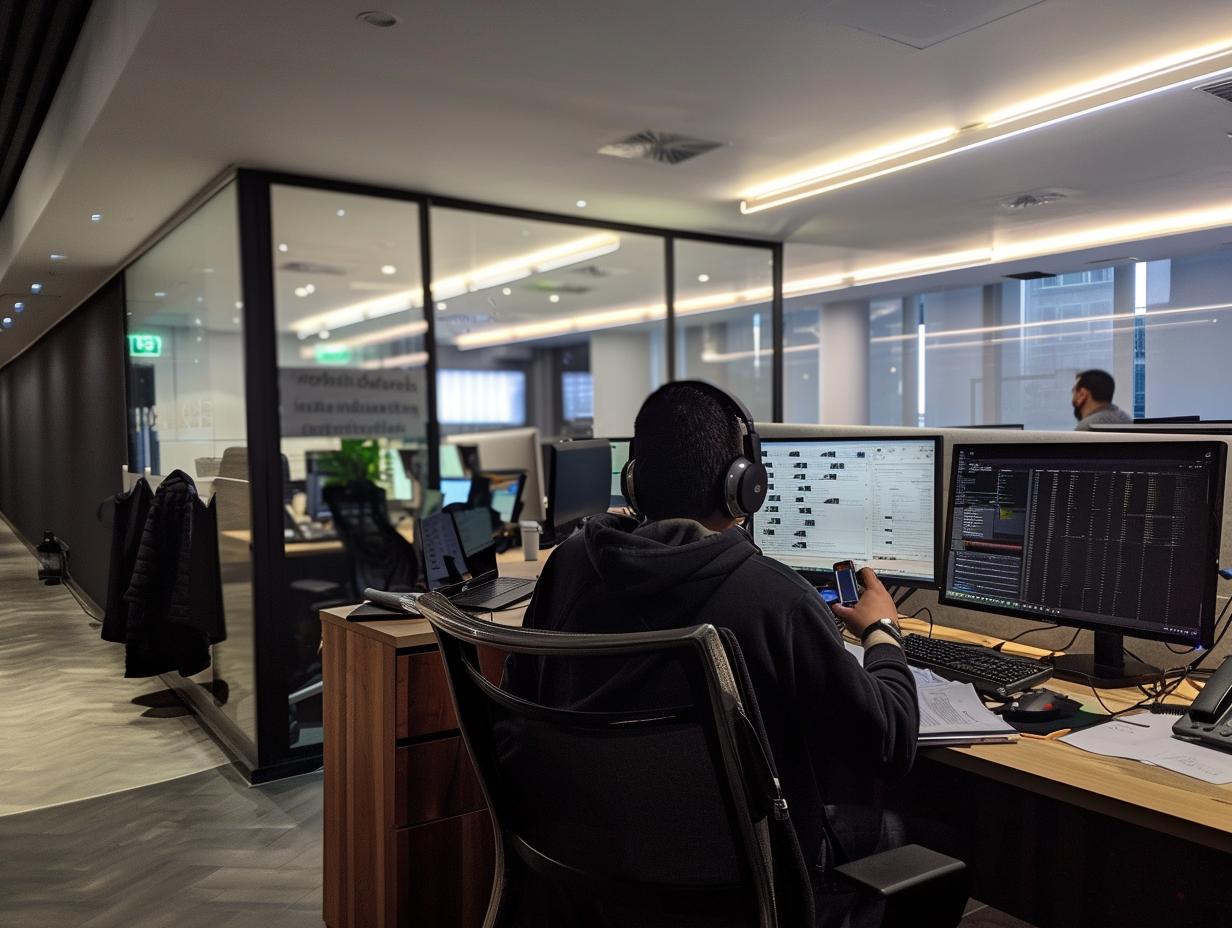The Pros and Cons of Leasing vs Buying Business Telephones: A Comprehensive Guide
In today's fast-paced business world, effective communication is pivotal. This article delves into the intricacies of leasing versus buying business telephones, two prevalent methods of acquiring communication technology in businesses.

Benefits of Leasing Business Telephones
Lower Initial Costs
Leasing business telephones reduces initial capital outlay, making it an attractive option for startups and SMEs.
Flexibility and Upgrades
Leasing offers the flexibility to upgrade to newer models, keeping businesses at the forefront of technology.
Maintenance and Support
Most leasing agreements include maintenance and support, alleviating the burden from the business.
Tax Benefits
Lease payments can often be deducted as a business expense, offering potential tax advantages.

Drawbacks of Leasing Business Telephones
Long-Term Costs
Over time, leasing can be more expensive than buying outright.
Limited Ownership
Leasing does not confer ownership, limiting control over the assets.
Contractual Obligations
Businesses are bound by lease terms, which can be restrictive.

Benefits of Buying Business Telephones Outright
Total Ownership
Buying provides complete control and ownership of the equipment.
Long-Term Cost Savings
Although the initial investment is higher, long-term costs are usually lower.
Flexibility in Choice
Buying offers more choices without the constraints of a leasing agreement.
No Contractual Limitations
There are no contractual obligations or limitations when buying.

Drawbacks of Buying Business Telephones
High Initial Investment
The upfront cost can be substantial, especially for high-end models.
Obsolescence and Upgrades
Technology evolves rapidly, risking obsolescence.
Maintenance Responsibilities
The business is responsible for all maintenance and repairs.

Comparing the Two Options
When comparing leasing and buying business telephones, it's essential to consider several factors that impact the long-term costs and benefits for your business. Here's an expanded look at these considerations:
Financial Implications
1. Initial Investment vs Ongoing Costs:
- Leasing: Generally involves lower initial costs, as it doesn't require a significant upfront investment. However, the ongoing lease payments can add up over time and may eventually surpass the cost of purchasing equipment outright.
- Buying: Requires a higher initial capital expenditure but eliminates ongoing lease payments. This can be more cost-effective in the long run, especially if the equipment has a long usable life.
2. Total Cost of Ownership:
- When calculating the total cost of ownership, consider not only the purchase or lease costs but also maintenance expenses, upgrade costs, and potential resale value for purchased equipment.
3. Depreciation and Tax Benefits:
- Leased equipment typically offers immediate tax deductions as an operational expense. In contrast, purchased equipment is usually capitalized and depreciated over its useful life, which can also offer tax benefits, albeit spread over several years.

Operational Considerations
1. Equipment Upgrade and Obsolescence:
- Leasing: Offers the flexibility to upgrade to newer technology more frequently, which can be a significant advantage in a rapidly evolving tech landscape.
- Buying: While it provides ownership, it also means the business bears the risk of the equipment becoming obsolete. However, if the technology meets long-term needs, this might be a manageable risk.
2. Maintenance and Support:
- Leases often include maintenance and support, reducing the burden on your IT staff.
- Purchased equipment may require additional investment in maintenance services or in-house technical support.

Strategic Business Needs
1. Scalability and Flexibility:
- Leasing can be more flexible for businesses that are growing or have fluctuating needs, as it allows for easier scaling up or down of resources.
- Buying is more suited for stable businesses with predictable communication needs.
2. Control and Customization:
- Owning equipment offers more control over the telecommunication system and the potential for customization. This can be important for businesses with specific communication needs.
3. Long-Term Business Planning:
- The decision should align with the company's long-term financial and operational strategy. For example, a business planning rapid expansion may prefer the flexibility of leasing, while a business with stable needs and sufficient capital may opt for purchasing.
This article has explored the various facets of leasing versus buying business telephones, highlighting the pros and cons of each. The decision ultimately depends on the specific needs, budget, and long-term strategy of the business.

FAQ's
What are the tax implications of leasing vs buying business telephones?
- When leasing business telephones, the monthly lease payments can usually be deducted as a business expense, which may reduce the taxable income of the business. In contrast, buying telephones outright means you can claim depreciation on the equipment, which can also be deducted over several years. However, the specifics can vary based on local tax laws and regulations, so it's advisable to consult with a tax professional for accurate guidance.
How does technology obsolescence impact the decision to lease or buy?
- Technology obsolescence is a significant factor to consider. Leasing can be advantageous as it allows businesses to upgrade to newer models more frequently, thus reducing the risk of using outdated technology. On the other hand, when buying, the business bears the risk of the equipment becoming obsolete. However, if the telephones meet the long-term needs of the business, this might not be a significant concern.
What are the maintenance responsibilities when buying business telephones?
- When a business buys telephones outright, it assumes full responsibility for their maintenance and repair. This means any costs for parts, labor, or service calls will be borne by the business. This can be contrasted with leasing, where maintenance and support are often included in the lease agreement.
Can businesses upgrade leased phones before the end of the lease term?
- This depends on the terms of the lease agreement. Some leases may offer the flexibility to upgrade to newer models during the lease term, potentially with an adjustment in the lease payments. However, other leases might be more restrictive and may not allow upgrades until the end of the term. It's important to thoroughly review the lease agreement and negotiate terms upfront.
Is leasing business telephones more cost-effective for small businesses?
- Leasing can be more cost-effective for small businesses in the short term due to lower initial costs and the inclusion of maintenance and support. It allows small businesses to access advanced technology without a significant upfront investment. However, in the long term, leasing might end up being more expensive. Each business needs to assess its financial situation and long-term needs to determine which option is more viable.
